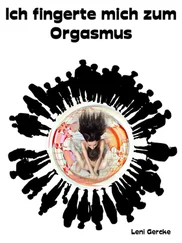They give her a kindly look and nod. They sit peacefully at their coffee, take one more piece of buttered bread before the plate of sweet rolls goes around. After only a few days at the parsonage, Cecilia has learned that the pastor and his wife take mealtimes seriously. They sit down to eat no matter how great a rush they’re in, and meals last long enough that everyone leaves the table refreshed. “It will be a broadening experience for Cecilia, who is clearly intelligent,” she heard the pastor tell her parents when he came to ask if she’d like to come and help with Sanna during her summer vacation, and now she sees how that works. When you get to see the way clever, educated people live, you develop thoughts and plans for your own life that broaden you!
As she reads aloud to Sanna and takes her out for walks and answers her thousands of questions—the pastor and his wife have taught her to take them seriously and answer them as best she can—June gallops away. Guests arrive from every direction and are stuffed into the house so that Cecilia must occasionally sleep in the sauna. That comes to an end when an amorous visitor from one of the sailboats forces his way in. Cecilia flees to the parsonage in tears, and the pastor and his wife abandon their guests in the parlour and talk to her in the kitchen.
“He said I was sweet,” she sobs. “He wanted a kiss.” She shudders and cries. The pastor’s wife says she was absolutely right to run away. No one on a sailboat has any business in the sauna, least of all late at night, so of course she was scared. Tonight Cecilia can sleep in the kitchen, and early tomorrow morning the priest will go talk to the sailboat people. The pastor’s wife wants to go herself, and she wants to go now and say what she has in her heart, but the pastor thinks they should sleep on it. He says maybe the man didn’t really mean any harm, but it’s asking too much for a fourteen-year-old girl to know how to deal with a big man who comes barging in at ten o’clock at night. Cecilia is still crying and telling them she’s so sorry for everything, and both the pastor and his wife are kind and tell her not to forget that it wasn’t she who forced herself on someone. She has done nothing wrong and doesn’t need to apologize. “On the contrary, we’re the ones who ought to apologize,” says the pastor’s wife, “for all Petter’s countless relatives who pushed you out to the sauna. It never crossed my mind that you wouldn’t be safe, not even here on Church Isle!”
She gets more and more worked up, and Cecilia stops crying and is frightened in a different way—well maybe it wasn’t as bad as all that! Oh my! And the pastor, soothing and concerned, says that all’s well that ends well. “Now we need to think about the sleeping arrangements, and tomorrow we’ll come up with a solution of some kind.” The pastor’s wife says indignantly that they no longer have any extra bedlinen at all—not a thing!—because of all the people they have in the house. It’s not a home any more, it’s a kolkhoz! In the end the pastor himself, who’s a man, has to trudge down to the sauna and carry up Cecilia’s bedclothes, which she can spread out on the kitchen floor. “So now we’ll sleep in the sauna,” says the pastor’s wife angrily, “and your parents can move into the bedroom.” Her tone of voice is such that for a moment Cecilia feels sorry for the sailboat tourists, who will now really have to watch their step.
In the morning, when they’ve slept on it, the pastor attends to the matter with diplomacy and tact. There is no inquisition, he just installs himself and his wife on the shelf in the sauna, speaks calmly with the summer sailors and explains that they have so many people in the house that they themselves were forced out. Cecilia was frightened by something the night before and shouldn’t have to sleep in the sauna by herself. They spend an uncomfortable night in the sauna, and it occurs to Mona that she is in the final stages of pregnancy and at least has the right to demand a decent mattress to sleep on, not just a collection of winter clothing as if they were hobos in a barn, where at least they’d have hay to sleep on. Here the barn has been scraped clean and there are people everywhere! Having a baby now would be very much like giving birth in a certain stable! This is a joke, but the pastor gets very anxious and questions her in detail about pains and premonitions. How is she feeling? Should he go up to the office and call Doctor Gyllen just to be on the safe side?
“Oh come on! Don’t I have the right to complain just this one time? Other people make a big deal of their pregnancies while I get chased out of my own home. I’m not going to sleep here one night more!”
No, of course not, and in the morning Cecilia herself solves the problem. Blushing and curtseying, she says that they’ve told her several times that she could happily take a few days off and go home if she wanted, but she herself has wanted to stay. Now she wonders if she might go home over midsummer. She’d be happy to take Sanna with her if that would help.
“Good heavens, no!” says the pastor’s wife. “If you take her along it won’t be time off. Petter’s sister should be able to do something! You just go on home, and have a nice holiday!”
The next morning, one of the sailboats sails away, end of story. All the boats and the great crowds of guests at the parsonage are there to celebrate midsummer in the outer islands, and when it’s over, the guests need to understand that it’s time for them to leave so that peace can return to the house. As soon as the holidays are out of the way, they’re going to make hay, and only when it’s been taken in can the pastor’s wife take things a little easier, as befits her condition.
Midsummer is the year’s biggest holiday on the Örlands. Midsummer Eve is a part of their pre-Christian heritage, and Midsummer Day, the Nativity of Saint John the Baptist, is a great church festival. They have no difficulty combining their two religions, and the delicious herbal scents of Midsummer Eve, which cause hymens to break and put new life into old people, has no argument with the chaste smell of birch in the embowered church. The church is full to overflowing, and everyone turns a friendly face to the priest and sings the summer hymns, which the organist plays with newfound feeling. It is not perhaps Saint John the Baptist that appeals to people so much as the lovely summer and all the summery, slim-waisted, broad-skirted dresses, blooming with sprays and garlands, visible proof of the rich herring fishing last summer, which filled many pockets with cash.
Sanna too has a new dress, sent to her by the Helléns, beautifully sewn with puff sleeves, a round collar and a wide skirt. To go with it, she has white socks and light summer shoes with a strap. No sweeter child has ever been seen, and the pastor looks at her as if he were in love, and she prances about and flounces her skirt until Mama tells Papa he should stop making so much of Sanna’s dress. The last thing they want is for her to grow vain and insufferable! “Excuse me,” he says, “but it’s just so much fun having such a fresh and darling little girl!”
“Two girls,” he corrects himself quickly, but she just snorts. “Oh, stop being silly. The way I look!”
He’s moved to see that Cecilia, too, has come to church with her family, even though she’s on vacation. Sanna greets her with a cry of joy and holds her hand in the churchyard. And without any of Mona’s mixed feelings, Cecilia says, “How pretty you look in your new dress.” Both he and Mona tell the parents how pleased they are with her and how pleasant it is to have her in the house.
The air is warm, no one is shivering and no one is in a hurry. In small groups, a large part of Örland parish stands gathered by their family graves, pulling weeds and watering occasional flowers, but mostly talking among themselves. Several young people wander down to the church dock and sit there talking and looking at the summer sailors, who feel suddenly very crowded and realize that they’re taking space meant for the churchgoers’ own boats, which swing at anchor anywhere they can find space in the little bay. But none of the Örlanders complains; they all call out cheerful greetings when they see people in the sailboats. The girls sit as if they were posing for a magazine, their skirts arranged prettily around them, their elegant legs in high-heeled shoes draped gracefully along the edge of the dock. Like young dandies, the island boys stand talking casually beside them. The naked eye can see no sign of uncertainty or artificiality, even though the entire arrangement is based on aesthetic calculation and close attention to detail. The weekend sailors are pale. Some of them have drunk too much the night before and are not well. They all feel shabby and unkempt, so one by one they disappear into their cabins and come out again dressed up in their yacht-club blazers, but they are second-rate sales clerks compared with the archipelago gallants, and they would never dare set sail within sight of these sovereign experts!
Читать дальше












